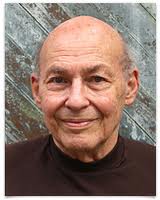Marvin Lee Minsky
Born August 9, 1927, New York; with John McCarthy, established the basic concepts of artificial intelligence; with Seymour Papert in 1969, solidified the computational limits of Rosenblatt's Perceptron.

Education: BA, physics, Harvard University, 1950; PhD, Princeton University, 1954.
Professional Experience: Lincoln Laboratory, 1957-1958; MIT: professor, mathematics, 1958-1961; professor, electrical engineering, 1958-2016; director, Project MAC AI group, 1968-1970; director, Artificial Intelligence Laboratory, 1970-1972.
Honors and Awards: ACM Turing Award, 1969.
Marvin Minsky has probably had more influence, or been a colleague of more people who have had influence, on the development of the concepts of artificial intelligence than any other single person. Over a period of 35 years he has probed most of the classic conjectures of the means to implement or model artificial intelligence. The Perceptron, conceived by Frank Rosenblatt in the mid-1950s, consisted of a set of photocells and random wiring which was capable of "learning" to recognize specific shapes, such as letters of the alphabet, possibly resembling the brain. Minsky and Papert wrote a book on Perceptrons and were able to define their mathematical properties, thereby allowing them to define the limits of the concept. Minsky gave up this field of study; however, in the form of neural nets, the concept is receiving attention again in the 1990s.
In the 1960s Minsky developed new mathematical ideas about artificial intelligence and applied his efforts towards pattern recognition and, eventually, vision. This led to the concept of "frames of information" and to the emergence of the ideas of "knowledge engineering." Throughout this period he worked on robotic devices endowed with vision in the early 1970s. These ideas were put into practical use as a means of inhabiting hostile environments.
QUOTATIONS
"The brain happens to be a meat machine."
"It is unreasonable ... to think that machines could become nearly as intelligent as we are and then stop, or to suppose that we will always be able to compete with them in wit or wisdom. Whether or not we could retain some sort of control of the machines, assuming that we would want to, the nature of our activities or aspirations would be changed utterly by the presence on earth of intellectually superior beings."
BIBLIOGRAPHY
Significant Publications
Minsky, Marvin, "Steps Toward Artificial Intelligence," Proc. IRE, Vol. 49, 1961, pp. 8-30.
Minsky, Marvin, Computation: Finite and Infinite Machines, Prentice-Hall, Englewood Cliffs, N.J., 1979.
Minsky, Marvin, and Seymour Papert, Perceptrons, MIT Press, Cambridge, Mass., 1968.
UPDATES
Marvin Minsky died January 24, 2016 in Boston. (THVV, 2016)
New content Copyright © 2013-2023 by the IEEE Computer Society and the Institute of Electrical and Electronics Engineers Inc.
All rights reserved. This material may not be reproduced or redistributed without the express written permission of the copyright holder.
